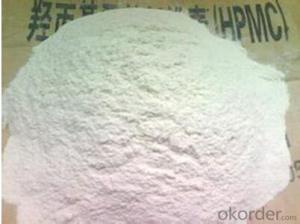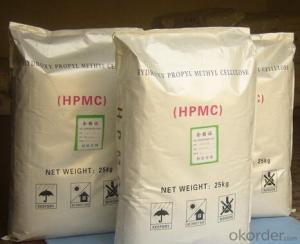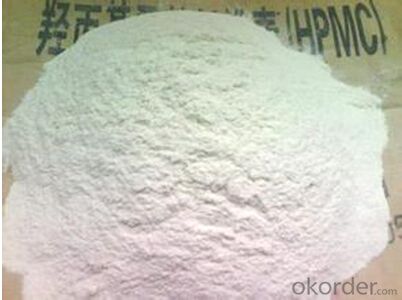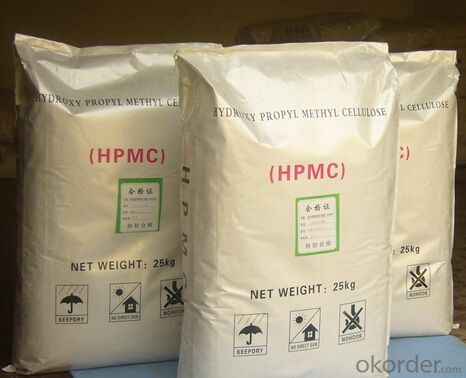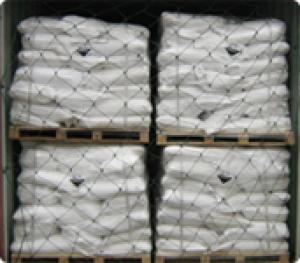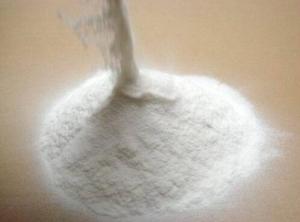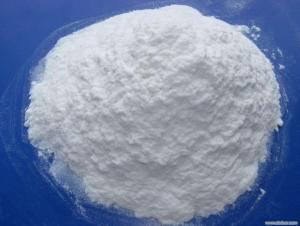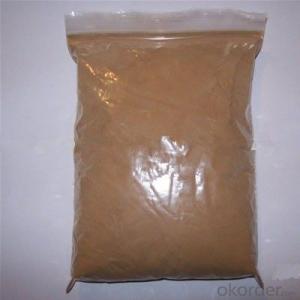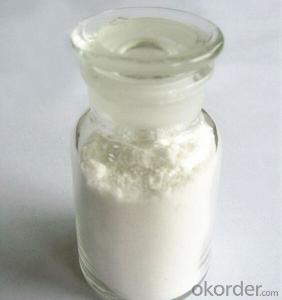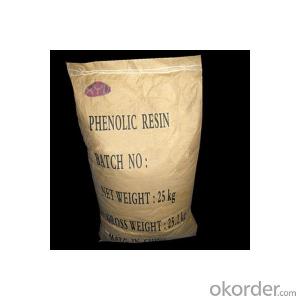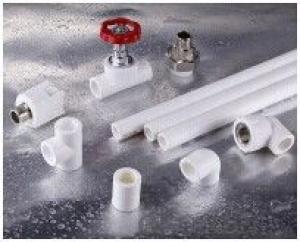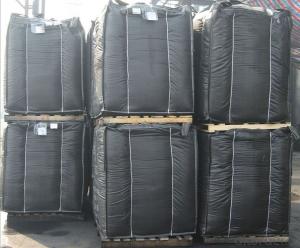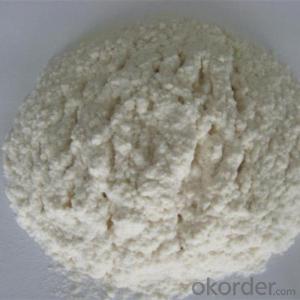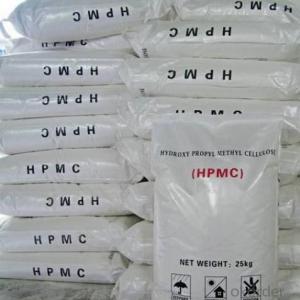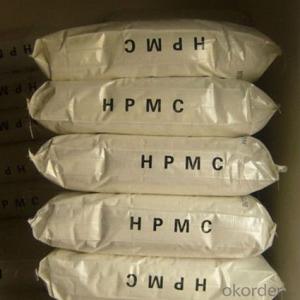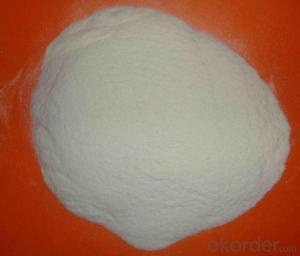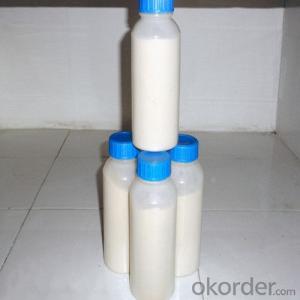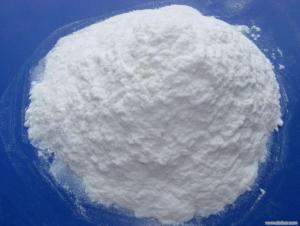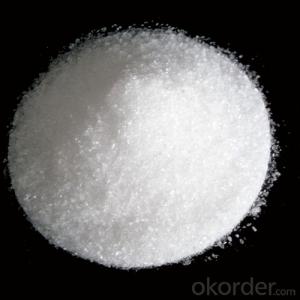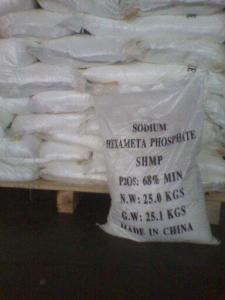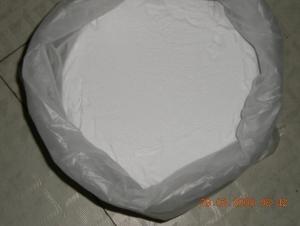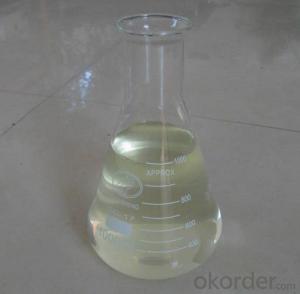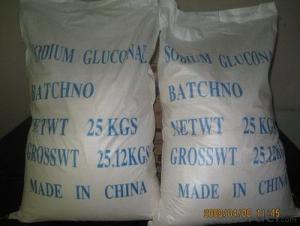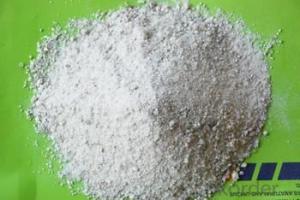HPMC Manufacturers High Viscosity for Building Materials
- Loading Port:
- Tianjin
- Payment Terms:
- TT OR LC
- Min Order Qty:
- 5 m.t
- Supply Capability:
- 1000 m.t/month
OKorder Service Pledge
OKorder Financial Service
You Might Also Like
Introduction of HPMC Manufacturers High Viscosity for Building Materials
HPMC is a non-ionic cellulose ethers produced from matural high molecular cellulose through series of chemical changes, They are characterized by the solubility in water, water retention, non-ionic type, stable pH value, surface activity, reversibility from gelling to solving at different temperature, thickening, binding, film-forming, lubricating and mold resistance. Due to all these special properties, they are widely applied for thickening, gelling, emulsifying, dispersing, stabilizing, water retaining and mixing improving in industries like building material, painting, synthetic resin, porcelain, medicine, food, textile, agriculture, cosmetics and tobacco
Image of HPMC Manufacturers High Viscosity for Building Materials
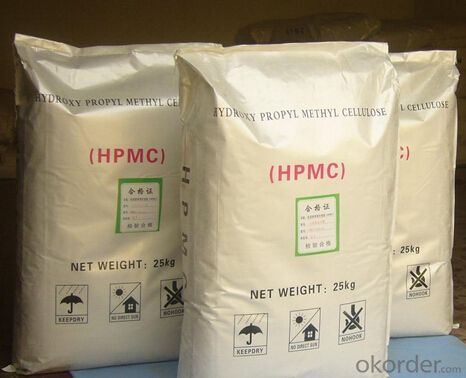
Application of HPMC Manufacturers High Viscosity for Building Materials :
HPMC is widely used in food, cosmetic and other daily use chemical lines, Typical usage as following:
1, External wall insulation system (EIFS)
2, Interior and exterior wall interface agent
3, Tile adhesive
4, Crack Filler
5, Self-leveling mortar
6, Gypsum-based plaster
Specification of HPMC Manufacturers High Viscosity for Building Materials
| Item | Specification |
| CAS NO. | 9004-65-3 |
| Appearance | white or light yellow powder |
| Moisture Content | ≤5.0% |
| PH | 4.0-8.0 |
| Particle Size | min. 98% pass through 100 mesh |
| Viscosity | 5000ps-200000cps, 2% solution |
- Q: I am 35 years old and recently have experienced severe reactions to food additives and preservatives. I have taken all of the food allergy tests and they all have come back negative. When I eat foods that have additives or preservatives, I experience anything from anaphylaxis to nausea. I have tried to do research on this and have come up empty. I was wondering if anyone else has experienced similar symptoms.
- think about it for more than 3 seconds.
- Q: Nanning where to sell food additives
- All the big market has ah
- Q: i have a 93 seadoo bombardier gtx that idles loud did low speed adjustment nothing happened was wondering what is the best fuel additive for it and what are your personal experiences with themit is oil injected
- All fuel and oil additives are a scam marketed to folks that don't know any better.
- Q: An extended auto warranty co. says to put a product additive in my radiator? What is it? Will it mess up car?
- I have never heard of a reputable warranty calling to put an aftermarket additive to the cooling system. They only serve to clog the system and prevent proper function. I would question such a practice. What company is this warranty issued through? What product do they say to use? Something definitely sounds fishy here.
- Q: can some one help me its for a science project list both and make a balence
- Pros: Grown without pesticides, synthetic chemicals, preservatives, non-irradiated, non-genetically modified, better nutrition for the person ingesting them, less toxicity for the person ingesting them, feeling of better well being is markedly noticeable Cons: Expensive, shorter shelf life ,limited availability, limited selection If you hear news reports telling you that there is no difference between the two, consider the source : It's just like most western medicine doctors telling people that vitamin supplements don't help people. Of course they are going to say that. Doctors want you to be sick so you'll buy their pimp's (pharmaceutical companies) drugs and spend money on doctor visits. Also pharmaceutical companies and most western medicine doctors don't make any money off of vitamin supplements or the fact that you are healthy.. Something to think about, huh? Believe it... cause it's true. It's a sad state of affairs, but it's definitely true
- Q: i nid it 4 mai report
- Antimicrobial agents, which prevent spoilage of food by mold or micro-organisms. These include not only vinegar and salt, but also compounds such as calcium propionate and sorbic acid, which are used in products such as baked goods, salad dressings, cheeses, margarines, and pickled foods. Antioxidants, which prevent rancidity in foods containing fats and damage to foods caused by oxygen. Examples of antioxidants include vitamin C, vitamin E, BHA, BHT (butylated hydroxytolene), and propyl gallate. Artificial colors, which are intended to make food more appealing and to provide certain foods with a color that humans associate with a particular flavor (e.g., red for cherry, green for lime). Artificial flavors and flavor enhancers, the largest class of additives, function to make food taste better, or to give them a specific taste. Examples are salt, sugar, and vanilla, which are used to complement the flavor of certain foods. Synthetic flavoring agents, such as benzaldehyde for cherry or almond flavor, may be used to simulate natural flavors. Flavor enhancers, such as monosodium glutamate (MSG) intensify the flavor of other compounds in a food. Bleaching agents, such as peroxides, are used to whiten foods such as wheat flour and cheese. Chelating agents, which are used to prevent discoloration, flavor changes, and rancidity that might occur during the processing of foods. Examples are citric acid, malic acid, and tartaric acid. Nutrient additives, including vitamins and minerals, are added to foods during enrichment or fortification. For example, milk is fortified with vitamin D, and rice is enriched with thiamin, riboflavin, and niacin. Thickening and stabilizing agents, which function to alter the texture of a food. Examples include the emulsifier lecithin, which, keeps oil and vinegar blended in salad dressings, and carrageen, which is used as a thickener in ice creams and low-calorie jellies.
- Q: Is this because the narrow band O2 sensors is detecting the additive and telling it that the gas is running to lean, So in return I'm using more gas?
- I have yet to find a fuel additive which will do diddly for fuel economy. Unless, as in your case they displace gasoline resulting in messing up the feedback system
- Q: And if so can I take the car to the store then put it in? Chevy 350
- If the engine has a roller hydraulic or solid roller camshaft, you don't even need a break-in additive or high dollar break-in oil. If the engine does not have a catalytic converter, diesel engine oil contains the very same additives as special break-in additive. Right now there is no better diesel engine oil than Rotella T6 Full Synthetic 5W-40. PS: Do you think Tu Tor has a clue?
- Q: pros and cons for flour additives?
- There okorder /reports/chemcuisi... Hope this helped and be sure to mention that people have a right to know what is in their food. Just because someone is making big bucks selling human hair doesn't mean we should be blindly eating it because the name L-Cysteine does not say what it is.
Send your message to us
HPMC Manufacturers High Viscosity for Building Materials
- Loading Port:
- Tianjin
- Payment Terms:
- TT OR LC
- Min Order Qty:
- 5 m.t
- Supply Capability:
- 1000 m.t/month
OKorder Service Pledge
OKorder Financial Service
Similar products
Hot products
Hot Searches
Related keywords
